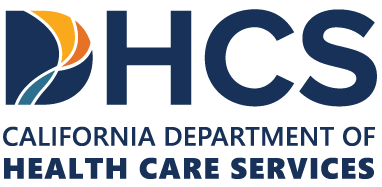Meth addiction is one of the most aggravating substance use disorders affecting communities across the United States. Identifying the warning signs of meth use can help inform timely intervention and recovery success.
This page examines the five most prominent indicators of methamphetamine use, empowering individuals and their loved ones to take appropriate action and seek professional help when needed.
1) Dramatic Physical Changes and Deterioration
Methamphetamine use triggers severe and often irreversible physical changes that become increasingly apparent over time. These transformations occur rapidly, sometimes within weeks of regular use.
Extreme weight loss and malnutrition
People using meth frequently experience dramatic weight loss due to the appetite-suppressing properties of the drug. Meth increases metabolism while simultaneously reducing the desire to eat, prompting dangerous nutritional deficiencies. Individuals may lose 20 to 30 pounds within months, developing a gaunt, skeletal appearance that friends and family find alarming.
Malnutrition extends beyond simple caloric restriction. Those using methamphetamine often neglect nutrition entirely, surviving on minimal food intake for days. This creates deficiencies in essential vitamins, minerals, and proteins necessary for basic bodily functions.
Dental deterioration and meth mouth
Perhaps the most recognizable physical sign is severe dental deterioration, commonly known as meth mouth. This condition involves rapid tooth decay, gum disease, and tooth loss that can occur within months of regular use.
Methamphetamine reduces the production of saliva, creating an acidic oral environment that promotes bacterial growth. People using the drug often grind their teeth intensely and neglect oral hygiene, accelerating the destructive process. Teeth may become blackened, broken, or fall out completely.
Skin problems and premature aging
Chronic methamphetamine use causes skin deterioration and premature aging. People often develop sores, acne, and infections that heal poorly due to compromised immune function and poor nutrition.
Many people experience tactile hallucinations, believing insects are crawling under their skin. This leads to compulsive scratching and picking, creating open wounds and scars. The combination of dehydration, poor nutrition, and constant scratching results in a prematurely aged appearance.
2) Severe Sleep Disturbances and Hyperactivity
Meth profoundly disrupts sleep patterns, creating extreme cycles of wakefulness and exhaustion that characterize active stimulant addiction.
Extended periods without sleep
People using the drug may remain awake for days or weeks during binge episodes. Meth stimulates the CNS (central nervous system) so intensely that sleep becomes impossible. These extended periods of wakefulness are followed by crashes, during which individuals sleep for 12 to 24 hours straight.
The sleep deprivation becomes increasingly severe over time. While those using the drug occasionally may stay awake for 24 to 48 hours, chronic meth use may cayuse people to remain conscious for a week or more. This leads to impaired judgment, coordination, and cognitive function.
Hyperactivity and restlessness
Even when not in active binge phases, those using meth display constant restlessness and hyperactivity. They may pace continuously, fidget with objects, or engage in repetitive behaviors for hours.
This hyperactivity often manifests as an obsessive focus on meaningless tasks. People using the drug might disassemble and reassemble electronics repeatedly, organize items compulsively, or engage in other purposeless activities with intense concentration.
Irregular sleep schedules
When people using meth sleep, their schedules become completely erratic. They might sleep during normal waking hours and remain active throughout the night. This disruption affects work, relationships, and basic daily functioning.
3) Dramatic Behavioral and Personality Changes
Meth addiction creates alterations in personality and behavior that can be shocking to those who knew the person before substance abuse began.
Increased aggression and violence
Those abusing meth often become aggressive, hostile, and potentially violent. The drug’s effects on brain chemistry can trigger explosive anger over minor incidents. Previously gentle individuals may become threatening or physically aggressive toward family members and friends.
This aggression often stems from paranoia, sleep deprivation, and the drug’s direct effects on brain regions controlling impulse and emotion. People abusing meth may perceive threats where none exist and react with disproportionate force.
Social isolation and relationship destruction
Addiction typically leads to severe social isolation as relationships unravel. People may abandon longtime friendships, become estranged from family members, and withdraw from previously enjoyed activities.
This isolation serves several purposes: hiding drug use, avoiding confrontation about behavioral changes, and focusing exclusively on obtaining and using methamphetamine. Some individuals may temporarily disappear from their social circles.
Compulsive and risky behaviors
Methamphetamine use is associated with risky and compulsive behaviors. People may engage in dangerous sexual activities while under the influence, commit crimes to fund their addiction, or make impulsive decisions with serious consequences.
The drug impairs judgment while increasing confidence, provoking a combination that leads to potentially life-threatening choices. People taking meth might drive while intoxicated, engage in violence, or take other risks they would never consider while sober.
4) Cognitive Impairment and Mental Health Symptoms
Chronic methamphetamine use causes significant cognitive deficits and mental health symptoms that persist even during periods of abstinence.
Memory problems and confusion
Individuals using meth experience severe memory problems, including difficulty forming new memories and recalling recent events. They may forget conversations, appointments, or important commitments within hours of making them.
The confusion extends to basic problem-solving and decision-making abilities. Simple tasks that were once routine become challenging or impossible to complete. People may become lost in familiar places or struggle with basic calculations.
Paranoia and psychotic symptoms
Methamphetamine frequently triggers paranoid thoughts and psychotic symptoms, even in individuals with no previous mental health history. Some people taking the drug believe they’re being watched, followed, or plotted against by friends, family, or strangers.
These paranoid delusions can become elaborate and consuming. Individuals may install multiple locks, constantly check windows and doors, or become convinced that electronic devices are monitoring them. Some experience auditory or visual hallucinations that feel completely real.
Anxiety and depression
Chronic meth use causes cycles of intense anxiety during active use followed by severe depression during withdrawal periods. The anxiety can be debilitating, preventing people from functioning at home, work, or school.
Depression during meth withdrawal can be so severe that many people return to using the drug simply to escape the emotional pain. This prompts a vicious cycle that complicates recovery without professional intervention.
5) Neglect of Responsibilities and Hygiene
As meth addiction progresses, people increasingly neglect basic responsibilities and personal care that were once priorities.
Poor personal hygiene
Personal hygiene deteriorates significantly as people become consumed with obtaining and using methamphetamine. They may go days or weeks without bathing, changing clothes, or performing basic grooming.
Work and financial problems
Employment difficulties become more common as addiction progresses. Individuals may frequently miss work, arrive late, perform poorly, or exhibit inappropriate behavior, which can lead to termination.
Financial problems follow quickly as people start spending growing amounts of money on meth, while earning less due to work problems. They may exhaust savings, max out credit cards, or resort to illegal activities to fuel their addiction.
Household and family neglect
Household maintenance and family duties are often abandoned. People may neglect children, fail to pay bills, or allow living conditions to degrade.
Homes may become unsanitary, with dishes piled up, garbage accumulating, and maintenance ignored. Parents may overlook children’s needs for food, clothing, or medical care while focusing exclusively on drug use.
Seeking Professional Help for Meth Abuse
Meth addiction is a complex medical condition that requires professional treatment to address safely and effectively.
At The Retreat South Coast, our experienced and compassionate team provides comprehensive treatment services, including medical detoxification, residential care, and ongoing support to help individuals reclaim their lives from meth addiction.
When you’re ready to take action and kickstart your recovery in California, call admissions at (949) 612-4789.








